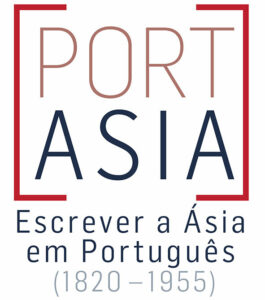Asian Writing in Portuguese: proposal for a special issue of Romance Studies (Taylor & Francis)
Duarte Drumond Braga, Center for Comparative Studies, CEComp, University of Lisbon
Paul Melo e Castro, University of Glasgow
The issue of Asian Writing in Portuguese has not yet been raised because Lusophone studies are rooted in a nationalist view of the Portuguese language map consisting solely of 8 nations, which makes the possibility of “Asian literatures in Portuguese” an entirely contrasting possibility. As a matter of fact, Asia as a space that has also written in Portuguese is something quite new as a scholarly field. African literatures in Portuguese are well known, they correspond to new nations, and their corpus is identified, which is not the case in Asia.
The 3 Portuguese Asian colonies that survived until very recently (Goa in 1961, Timor in 1975 and Macao in 1999) do not correspond (except East-Timor) to national models, and their intellectual life in Portuguese only recently started drawing more scholarly attention.
These Literatures are doubly marginal, inside the context both of Lusophone and of Asian literatures, since their belonging is ambiguous, and their corpus still needs to be fully known through archival work. The production of those Asian spaces has often been posited in independent terms (literature of Macao, Goan literature); other territories are undergoing an identification phase (East-Timor); and others are still not considered from this perspective (Mozambique), even if pertaining to an Afro-Asian platform of material circulation and symbolic goods. As regards authors, an ethnic/national criterion cannot be followed since the authors have plural origins: they may be native, luso-descendants, or from creole communities and the territories to which they belong are either not nation states or still early in a process of national consolidation. Portuguese authors that have a strong connection, biographical or other, to the territories of Mozambique, Malacca, Goa, Macao and EastTimor, but also territories who never were colonized by Portugal such as Japan, Thailand and other parts of Southeast Asia should be considered, since there are continuous writing traditions in Portuguese about those territories. While we are particularly interested in comparative studies, proposals that focus on individual territories or authors are welcome.
Please submit your abstract by May 2, 2022 to:
Duarte Drumond Braga: duartedbraga@gmail.com
Or
Paul Castro: paul.castro@glasgow.ac.uk
